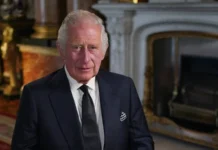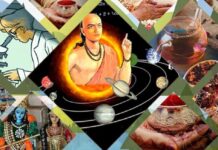All of us who are alive today will sooner or later have to travel some day to the other world. Although unseen biological and cosmic clocks are ticking away quietly, there is usually no awareness of a fixed age, a fixed time to leave. The exceptions range from those who have premonitions, to yogis or highly evolved souls, to many suffering from terminal maladies, to those who choose to take their own lives through euthanasia, suicide or other means. As a result of these combined factors, some may leave when still very young while others leave when older, perhaps middle aged or at a ripe old age. Are there pros and cons to dying young, dying in mid-life, dying in old age?
Does dying young or old affect the soul? Yes, it does seem to have different effects. But the soul is ageless, immortal, so how can the age at which one dies affect it? As reflected in Thomas Adams quote, “Death is as near to the young as to the old; here is all the difference: death stands behind the young man’s back, before the old man’s face.” Indeed, one can understand how profoundly the death of a child or of someone in the prime of life can affect those who are left behind on earth. But how does a young or old time-line affect a departed soul?
Time and again it has been seen that attachments—they may be to a person, an animal, a tree, a place or any other object—are amongst the major reasons that can prevent a soul from proceeding on its normal astral journey after death. In the case of people who die young suddenly like in an accident or who are murdered, a vibrant life with all its ambitions and dreams is cut short and the young dead person’s soul finds it difficult to adjust to the rude, unexpected exit and the prospect of a journey into the unknown, bereft of earthly friends and loved ones. Spirit guides acknowledge that dealing with young deaths is much harder than dealing with old age deaths, partly because unlike young people, an older person’s soul has had the time on earth to gather experience, satiate at least some if not all desires and condition itself to realities and is therefore in many ways better prepared to leave earth.
Partly, the grief of parents and others at the sudden separation contributes to a young person’s soul holding on to earthly ties. But many a time, if the person who has died young belongs to a family that is enlightened or is guided by wise elders or a priest or a guru and is aware that the dead young person had some strong attachments or unfulfilled dreams or desires, steps are taken to ensure that these earthly connection factors do not serve as a “baadha” to the soul’s progress. Appropriate measures which will bring peace to the soul in view of its connections are taken.
Often, if there was attachment to an object or a particular set of clothes or toys or playthings they are, if viable, cremated or buried alongside the person. And yet very frequently, despite such measures and spirit helpers, a young person’s soul is unable to come to terms with leaving earth and is reluctant to move on. Ninety percent of bereaved parents I have met have narrated how the soul of a young loved one has lingered around for a long time.
There are so many touching stories of young dead children still playing with their toys, still cuddling a pet, of a dead teenager working on his laptop or listening to music, a twenty two year old starting a motorcycle, a young girl trying on a favourite dress… There was young Vaku Iyengar who had such a soft spot for animals and birds that it had become almost a joke—at home, at school, amongst people who knew him. Seeing an injured animal or bird distressed Vaku immeasurably and he often declared that he would become a “doctor for animals.” Ironically, it was while rescuing a poor kitten from a group of cruel children that Vaku was stoned to death. While Vaku’s heartbroken father was in favour of turning the wooden shack and backyard where Vaku used to bring injured animals into a Vaku Memorial Veterinary Centre, his mother was against it. “His obsession with animals caused his death”, she mourned, “and a centre like that will be a constant reminder of the blow Fate has dealt us”.
It was almost as if Vaku was listening, and had decided that they should both have their wish. Soon, a regular stream of injured animals seemed to find its way to the Iyengar’s backyard. Somebody it seemed, was leaving them there at night. “Why don’t you keep watch”, suggested Vaku’s mother. But his father just smiled. “Sometimes, it is better not to see” he answered. “You have your wish, because it is not an official animal centre. I have mine, because animals are being treated. And Vaku”, he added softly,” is the one managing it all”. As Amanda Linette Meder, a writer, teacher, naturalist and psychic medium, has pointed out, “An early death simply removes the soul from whatever may have been preventing them from accomplishing their truest dreams in this life, allowing them all the means necessary to make their truest dreams come true…”
Nayaswami Parvati of Ananda, a global movement based on the teachings of Paramhansa Yogananda, was once asked why good people seemed to die young. The replt: “It may be that the ‘good’ souls you have seen who died early had worked out much of their karma in past lives. Perhaps they came into the present life to work out some last bit of karma that was holding them back.”
Nayaswami Pranaba, also of Ananda, elaborated further: “Sometimes an early death could be a blessing; a person may simply have worked out as much of their karma as they are able to do in their current lifetime, and that’s as far as they’re going to go. One way of looking at karma is that an accident is a relatively quick way to move on.” Dying young could certainly be a blessing in the larger, deeper context of life and death. However, the fact remains that it is far more of a struggle for young souls to cut off earthly connections than it is for older souls. Quite obviously, there are pros and cons to dying young, dying in mid-life, dying in old age.






